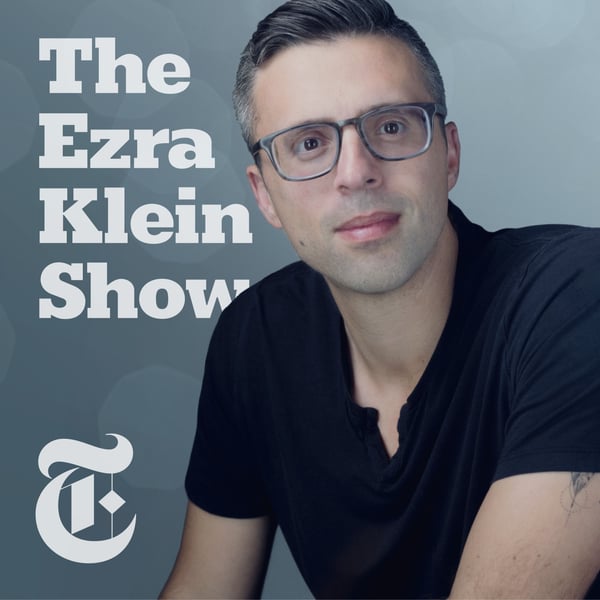Fiona Hill on the War Putin Is Really Fighting
The Ezra Klein Show
New York Times Opinion
4.6 • 11K Ratings
🗓️ 8 March 2022
⏱️ 59 minutes
🧾️ Download transcript
Summary
Transcript
Click on a timestamp to play from that location
| 0:00.0 | I'm Mr. Client and this is the Esmeralynchop. |
| 0:21.8 | If there is to be an off ramp in Ukraine, a deal, something to stop the fighting here, |
| 0:27.4 | it's going to need to be something Putin, Zelensky and the West can all agree on. |
| 0:33.7 | And as hard as that kind of deal was to imagine a month ago, it is harder now. |
| 0:39.4 | Because think about how all of the actors and factors here have changed. |
| 0:43.8 | Vladimir Putin had a very optimistic view of how this was going to go. |
| 0:47.8 | He thought he was going to roll in and Ukraine would be full of people with ethnic Russian |
| 0:52.5 | heritage with Russian fellow feeling. |
| 0:55.7 | They're going to welcome the Russians as liberators. |
| 0:58.4 | That is not how they welcomed the Russians. |
| 1:01.7 | So now Putin fears the think he fears most, which is humiliation. |
| 1:06.0 | He's tried to secure not just Ukraine, but now his regime is survival and his very |
| 1:10.6 | place in history. |
| 1:12.6 | The stakes of this war have completely changed for him. |
| 1:15.8 | The Ukrainian people have united under President Zelensky's remarkable leadership. |
| 1:20.5 | Their sense of national identity, their sense of who they are and where they belong in |
| 1:24.8 | the world, it is completely different now. |
| 1:27.3 | They are not going to allow themselves to be mere pawns in games of great power politics. |
| 1:33.6 | The idea that this could just be carved up between Russia and the US and Europe, that's |
| 1:39.0 | a fantasy. |
| 1:41.0 | And on that, the meeting of Ukraine, the stakes of Ukraine, they've changed for the United |
| 1:44.7 | States in Europe too. |
... |
Please login to see the full transcript.
Disclaimer: The podcast and artwork embedded on this page are from New York Times Opinion, and are the property of its owner and not affiliated with or endorsed by Tapesearch.
Generated transcripts are the property of New York Times Opinion and are distributed freely under the Fair Use doctrine. Transcripts generated by Tapesearch are not guaranteed to be accurate.
Copyright © Tapesearch 2025.

